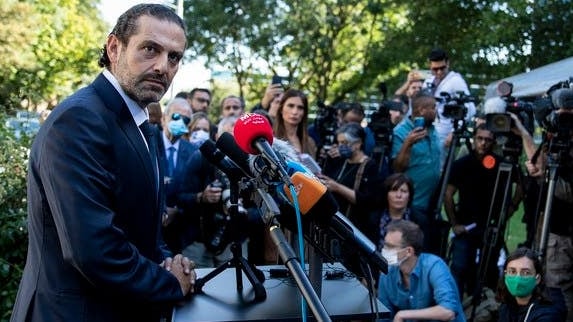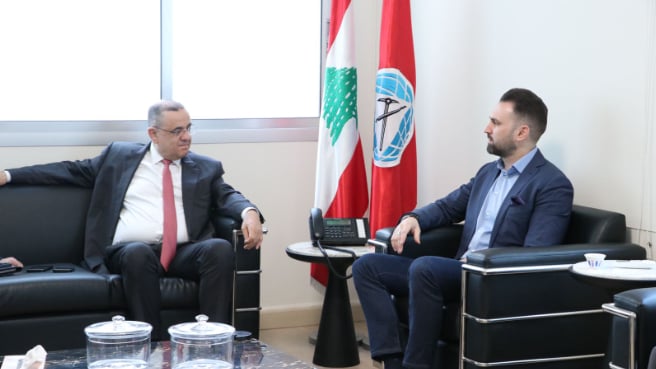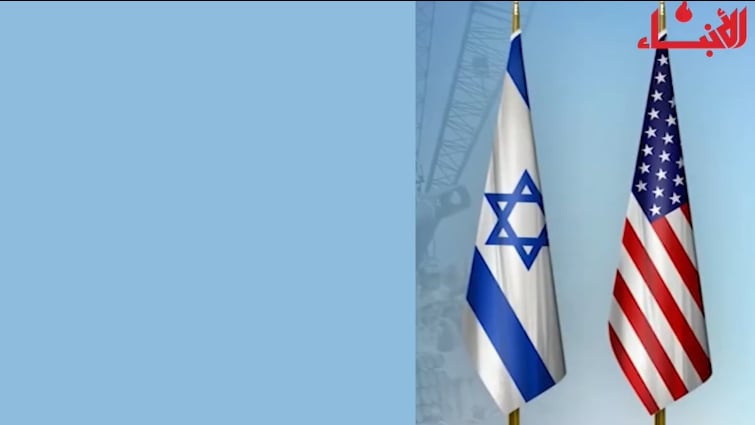Lebanon’s Prime Minister Designate Saad Hariri paid an unannounced visit to Turkey on Friday, where he met with Turkish President, Recep Tayyip Erdogan.
There is little information about the two-hour “private meeting” held in Erdogan’s residence at Vahdettin Palace in Istanbul.
It’s understood that regional security issues, and ways of "deepening and strengthening" ties were discussed, according to a press release published by the Turkish presidency shortly after the meeting, but with no more details.
In its turn, Hariri's office said the two leaders discussed "ways to support the efforts to stop the collapse, and rebuild Beirut as soon as the new government is formed in Lebanon".
Turkish newspapers and media covered the visit with barely any analysis about the timing or content of the visit. It comes after almost four months of designating Hariri the failed mission of forming a new Lebanese cabinet.
If shedding light on the visit in Istanbul and Ankara was dim, it was not the same in Beirut. Analysis centered on whether the Gulf States coordinated the visit. The GCC members traditionally have good ties with Hariri, and Rafic, his father before him.
Information that the visit has been negatively received by Riyadh and other Gulf capitals could not be verified.
The same scenario happened in 2018 after Hariri’s visit to Istanbul when “a source from Saudi Arabia’s foreign ministry described several media reports that Riyadh was uncomfortable with Lebanon’s prime minister’s visit to Turkey as false”.
The visit came only three days after the reconciliation between Saudi Arabia, and the other GCC members with Qatar: the ties severed in 2017 because of Qatar's support for extremist groups.
Will there now be a Gulf-Turkish rapprochement? It isn't clear.
Qatar has always had deep political ties with Turkey. The two countries worked together during the Syrian crisis, with the latter positioning its forces to the North of the country creating a buffer against the Kurds. Qatar has supported several militant groups opposed to the Syrian Regime.
Questions about the repercussions for Hariri’s visit to Istanbul at this time were not restricted to his future relations with the Gulf States, but also with France.
Paris has launched a political initiative following last year’s port explosion in Beirut with the aim of helping Lebanon’s ailing economy, after a new cabinet being formed, and much-needed reforms. Hariri has held thirteen meetings with the Lebanese President Michel Aoun with no progress of achieving this. The country’s economic and social scales continue to deteriorate.
Whether Hariri’s Istanbul visit will aggravate further his relations with Paris is not yet known. Paris and Ankara have not been on good terms recently on several issues, with Lebanon being one of them.
The solidarity visit by the French President Emmanuel Macron to Beirut last August after the Port blast was criticized by Erdogan who said explicitly in a speech at Ankara: "What Macron and company want is to restore colonial order (in Lebanon)". He sent in his envoy to Beirut straight after that, Vice- President Fuat Oktay who said that “relations between Turkey and Lebanon go beyond being neighbors and include ties of amity and brotherhood”.
Ruled by the Ottomans for almost four hundred years, Lebanon saw the French move in after the Turk’s empire collapse at the end of the First World War. Lebanon only gained independence in 1943, with the last French soldier leaving Lebanese soil in 1946.
Is Lebanon witnessing a new power contest between Turkey and France?





